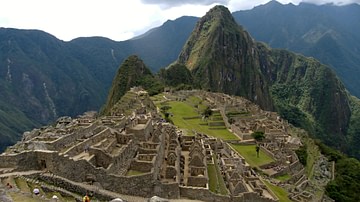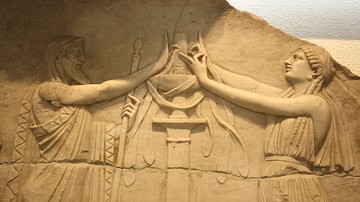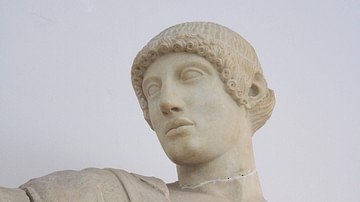Search
Search Results

Article
Ten Should-Be Famous Women of Early Christianity
There were many famous women of early Christianity who made significant contributions to the development of the faith but have since been largely forgotten. Some have been canonized by the Church or recognized in other ways, but their efforts...

Article
The Roman Baths in Bath- A Deep Dive into Britain’s Ancient History
Bath, the famous spa town in Somerset England, has attracted people from near and far for centuries to its healing springs and baths. Today the city is known for its beautiful Georgian architecture and as the destination for the wealthy elite...

Article
Mayflower Passengers & Crew
The 102 Mayflower passengers were a diverse group made up of religious separatists (later known as pilgrims) and others referred to by the pilgrims as Strangers (people who did not share their faith). The ship also had a crew of approximately...

Article
The Red Handprints of Cozumel & Tulum
The Maya sites of San Gervasio (on the island of Cozumel) and Tulum (on the mainland of Mexico in Quintana Roo) are often overlooked for the better-known Chichen Itza or other spectacular ruins further inland but both these locations have...

Article
Battle of Civitate
The Battle of Civitate was fought in southeastern Italy on 18 June 1053 between a papal army of Pope Leo IX (r. 1049-1054) and an outnumbered force of Norman knights seeking recognition of their conquests and titles. The Normans were victorious...

Definition
Inca Civilization
The Inca civilization flourished in ancient Peru between c. 1400 and 1533 CE. The Inca Empire eventually extended across western South America from Quito in the north to Santiago in the south. It was the largest empire ever seen in the Americas...

Definition
Ares
Ares was the Greek god of war. He was perhaps the most unpopular of all the Olympian gods because of his quick temper, aggressiveness, and unquenchable thirst for conflict. Ares famously seduced Aphrodite, unsuccessfully fought with Hercules...

Definition
Ancient Greek Religion
In the ancient Greek world, religion was personal, direct, and present in all areas of life. With formal rituals which included animal sacrifices and libations, myths to explain the origins of mankind and give the gods a human face, temples...

Definition
Apollo
Apollo was a Greek god associated with the bow, music, and divination. The epitome of youth and beauty, source of life and healing, patron of the arts, and as bright and powerful as the sun itself, Apollo was perhaps the most loved of all...

Definition
Johannes Gutenberg
Johannes Gutenberg (l. c. 1398-1468) was the inventor of the printing press (c. 1450) who seems to have developed the device from wine and oil presses of the time. Gutenberg’s printing press not only revolutionized book making but literally...